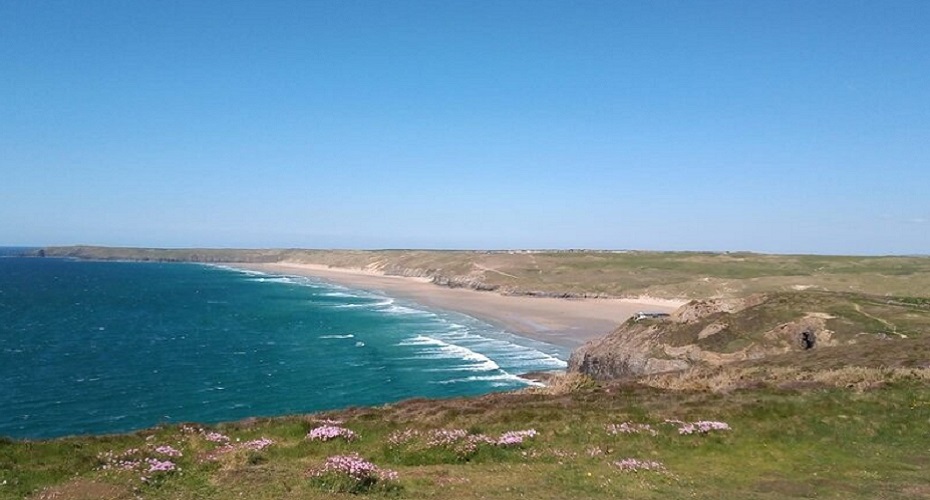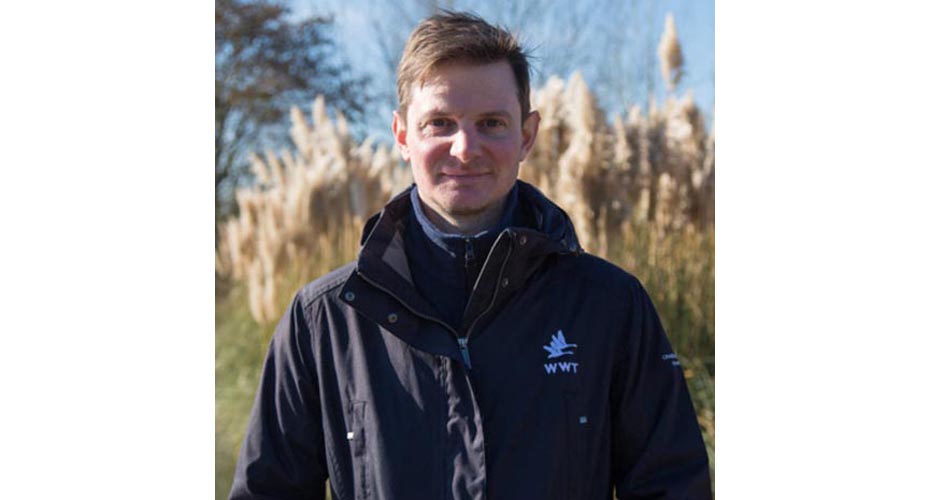Nature, Health and Well-being CPD Course
Dates: Next iteration Spring 2025
Venue: Online via Zoom
Time: To be confirmed
There are many health risks associated with exposure to natural environments - allergies, ticks, drowning, algal blooms, antimicrobial resistance, to name a few. However, this course takes a much more positive view of the nature-health nexus. It investigates how natural environments can benefit the physical and mental health of humans in a variety of different ways and how this topic has become increasingly important in policy.

What's the relationship between nature and health?

How does the relationship work - by which mechanisms?
About the course
This course will explore how natural environments can benefit the physical and mental health of people in a variety of different ways. It will address the relationship between nature and health, how the relationship works, why this matters for the environment, public health and sustainability, as well as how you can apply these learnings in your own practice.
This course investigates the potential for the natural environment to be harnessed as a resource to improve human health and wellbeing. The potential mechanisms, moderators, and applications for these health benefits will be explored, considering large data sets and key studies linking nature and exposure and health, both within the UK and around the world.
Led by national and international experts from The European Centre for Environment and Human Health, this four-day course will be delivered virtually.
What will you learn
- What’s the relationship between nature and health?
- How does the relationship work – by which mechanisms?
- Who does nature-health work for (and not work for)?
- Why does this matter for the environment, public health and sustainability?
- How can you apply these learnings in your own practice?
CPD Accreditation
'Nature, Health and Wellbeing CPD Course' has been approved by the Federation of the Royal Colleges of Physicians of the United Kingdom for 14 category 1 (external) CPD credit(s).
Delivery dates: To be announced for next iteration in Spring 2025
Delivery Format
This course will be delivered via half-days fully online. The sessions will use a combination of participatory methodologies including presentations, group discussions and breakout groups.
The course will include a pre-reading week, reflection week, and some self-directed study. We advise you to make every effort to join all sessions to gain the most out of the course. But if you are unable to attend any of the sessions the sessions will be recorded and made available.
Delegate Rates
£660 - Includes the above and access to recorded lectures, resources and teaching materials
£600 - Early bird rate (until 31st Dec 2023)
Feedback and Certificates
We will ask you to complete a polling survey at the end of each day. Your feedback will allow us to make adjustments for the next delivery session.
At the end of the course, we will send you a certificate outlining your learning outcomes.
The course is well suited to anyone across all sectors interested in the nexus of natural environments and human health. This can include SMEs, NGOs, and charities delivering nature-based activity programs, government agencies interested in nature or health, and local authority teams working in natural infrastructure, nature recovery, and public health.
*No pre-requisites or specialist knowledge are required to undertake this course, which is well suited to interdisciplinary learning.
Programme
(*The programme may be subject to minor amendments)
Pre-Reading Week: Delegates will be sent pre-reading material 4th March 2024
We advise you to make every effort to join all sessions to gain the most out of the course.
Day 1: 11th March 2024 “What is the relationship between nature and health?”
|
0915-0955
|
Introduction to the course and its structure
Definitions of and exploring key concepts of ‘health’ and ‘environment’
|
|
0955-1000
|
BREAK
|
|
1000-1100
|
Introductions
|
|
1100-1130
|
BREAK
|
|
1130-1225
|
Nature and Mortality
|
|
1225-1230
|
BREAK
|
|
1230-1315
|
Review session
|
Day 2: 14th March 2024 “How does the relationship work?”
|
0915-0955
|
Nature and physical activity
|
|
0955-1000
|
BREAK
|
|
1000-1100
|
Stress, mental health, and social contact: Part 1
|
|
1100-1130
|
BREAK
|
|
1130-1225
|
Stress, mental health and social contact: Part 2
|
|
1225-1230
|
BREAK
|
|
1230-1315
|
Review session
|
Day 3: 18th March 2024 “Who does the relationship work for?”
|
0915-0955
|
Nature and Health Inequalities
|
|
0955-1000
|
BREAK
|
|
1000-1100
|
Nature and health across the life course
|
|
1100-1130
|
BREAK
|
|
1120-1225
|
Diverse environments and embedding diversity
|
|
1225-1230
|
BREAK
|
|
1230-1315
|
Review session
|
Day 4: 21st March 2024: “Applying nature, health and well-being scholarship”
|
0915-0955
|
Social prescribing of nature
|
|
0955-1000
|
BREAK
|
|
1000-1100
|
Environmental improvements and health
|
|
1100-1130
|
BREAK
|
|
1130-1200
|
Ensuring equity in interventions
|
|
1200-1230
|
Nature, biodiversity, health, and policy
|
|
1230-1235
|
BREAK
|
|
1235-1255
|
Review session
|
|
1255-1315
|
Wrap-up
|
Whether you study on-campus, virtually, or via a blended learning programme, you'll be supported by the University of Exeter's world-class faculty with wide-ranging opportunities to develop interdisciplinary and vocational skills. Find out more
Speakers

Dr Lewis Elliott
Lecturer in Environment and Public Health
Dr Lewis Elliott is a lecturer in environment and public health at the European Centre for Environment and Human Health, University of Exeter Medical School. After undertaking bachelor’s and master’s degrees in psychology, his PhD focused on how to change nature-based recreation behaviour, particularly for physically inactive populations. He then spent four years working on the Horizon 2020 BlueHealth project looking at the relationships between blue spaces in Europe and public health and wellbeing. His current research spans environmental and health psychology, and environmental epidemiology and is particularly concerned with residential access to, and recreational contact with, natural environments and their impacts on health and health inequalities. He maintains an active interest in cognitive and social psychological processes with regards to nature, biodiversity, and health, and also how nature is experienced by people with severe mental illness.

Senior Lecturer in Biodiversity, Health and Policy
Dr Rebecca Lovell is a Senior Lecturer in Biodiversity, Health and Policy at the European Centre for Environment and Human Health, WHO Collaborating Centre on Natural Environments and Health at the University of Exeter Medical School. Becca focuses on evaluating, synthesising and translating evidence of the links between nature and health for policy and practice, and has undertaken related work with and for policy and service delivery bodies including WHO, CBD, PHE, Defra, MHCLG, Natural England and the Forestry Commission (see examples at www.beyondgreenspace.net). She is interested in the multiple roles of the natural environment in determining equitable population health; ‘what works’ in environmental health interventions, including nature based social prescribing, and the delivery of nature-based solutions; and how better understandings of the economic, social and health values of natural environments could inform cross-sectoral decision making and ways of working.

Associate Professor
Professor Ben Wheeler is Associate Professor in Environment, Health and Inequalities at the European Centre for Environment and Human Health, and is Centre co-director. With wide-ranging research interests in environment-health interconnections, his PhD was in the Department of Social Medicine at the University of Bristol, on the relationship between socio-economic health and environmental inequalities. His first post-doctoral research position was at Victoria University of Wellington School of Earth Sciences, in a unit funded by the NZ Ministry of Health to carry out geographical public health research. Subsequent research positions have been at the University of Sheffield Department of Geography, and back at the Department of Social Medicine at Bristol. He has also worked in public health in the National Health Service, and with environmental consultancies.
Ben has been at the European Centre for Environment and Human Health since its beginnings in 2010. He applies geographical and epidemiological methods to research the beneficial and adverse impacts that the environment can have on human health and health inequalities.

Professor Cornelia Guell is a medical anthropologist whose research focuses on healthy living practices and policies and how these are shaped across the lifecycle, population groups, and socio-cultural, political and economic contexts.
After completing a first degree in sociology and social anthropology at the University of Heidelberg and graduate training in medical anthropology at Brunel University, Conny was awarded an ESRC PhD scholarship and a Wenner-Gren dissertation grant to explore Turkish immigrant experiences with diabetes care in Berlin, Germany (PhD in Social Anthropology, Edinburgh, 2009). She undertook postdoctoral research on physical activity in British Pakistani women at Durham University, and was the qualitative research lead on a mixed-method project to investigate decision-making and social contexts in commuting at the MRC Epidemiology Unit and the Centre for Diet and Activity Research (CEDAR) at the University of Cambridge. After three years of teaching and research (on diabetes care and chronic disease policy implementation) at the University of the West Indies in Barbados, Conny returned to CEDAR to conduct an ethnographic study on aspirations for active ageing; she also led on a knowledge exchange study in transport and health.
Now based at ECEHH, Conny continues to develop social theoretical and qualitative methodological approaches for exploring the social and physical environments that shape health behaviours. A particular interest lies in framing behaviour change within social practice theories, and in understanding multi-sectoral policy responses to chronic diseases in the UK, the Caribbean region and elsewhere.

Senior Lecturer in Health Geography
Dr Sarah Bell
Sarah is a Senior Lecturer in health geography at the University of Exeter, whose work is underpinned by a passion for qualitative methodological innovation, designing sensitive approaches that promote critical awareness of varied ways of embodying and interpreting everyday geographies. Much of Sarah’s research examines experiences of health, wellbeing, disability and social inclusion in and with diverse forms of ‘nature’ - from parks, gardens, woodlands, coast and countryside to the weather, seasons and climate change. More information about this work is available online: www.sensing-nature.com
Most recently, Sarah has been developing new collaborations to understand how climate change – and prominent societal responses to it – are shaping the everyday lives and adaptive capacities of people with varied experiences and histories of disability.

Environment and Health Impact Assessment Programme, Regional Office for Europe and European Centre for Environment and Health WHO | Technical Officer (Urban Health and Equity)
Matthias Braubach works as a Technical Officer of Urban Health Equity at the WHO European Centre for Environment and Health. With a background in urban geography and a Masters in Public Health, Matthias coordinates activities on healthy built environments, assessing the health impacts of inadequate housing and environmental conditions in urban settings. His work focuses on inequalities in environmental exposure and environmental justice issues. He has participated in diverse EU projects on urban and health equity issues, published various journal articles and WHO reports, and lectured in the Public Health Module of the Disaster Management Master Course at Bonn University.

Mark Ferguson is a PhD student using birth cohorts to understand the impact of urban green space on child health and wellbeing.
His research will produce environmental data to assess contact with nature. He will link this with health outcomes amongst children growing up in two UK birth cohorts.
Mark’s particular interests are the environmental determinants of health, GIS, environmental equity, and measuring and conceptualising contact with nature.
His undergraduate degree was in environmental sciences, and his postgraduate degree was in sustainability. This interdisciplinary training focussed on the balance between improving human development while reducing our impacts on the natural environment.
Since graduating, Mark’s research has centred on measuring access to green infrastructure and assessing the equitable distribution of environmental benefits.
His is funded by a GW4 Biomedical Doctoral Training Partnership.

Research Fellow
Dr Jo Garrett is a Research Fellow at the European Centre for Environment and Human Health (ECEHH) focused on the interactions between human health, well-being, and the environment. Jo is predominantly a human geographer, utilising quantitative and GIS approaches. Jo currently works on the 'Renewing biodiversity through a people-in-nature approach' (RENEW) project; HEROIC Health and Economic impacts of Reducing Overheating in Cities; and the REGREEN project, focused on valuing nature-based solutions in cities. Jo also leads the EXPO-ENGAGE project which aims to co-produce a research plan for air quality citizen science in two areas in Cornwall and South Wales.
Previous projects include: RECONECT – utilising systems thinking in nature-based solution evaluation and BlueHealth – analysing survey data to explore the links between blue spaces and well-being.

Principal Research Officer (Health & Wellbeing) at Wildfowl & Wetlands Trust
Before WWT, Dr Jonathan Reeves worked as a molecular biologist studying the genomics of wild plant-virus ecology for The Centre for Ecology and Hydrology (CEH) in Oxford. This work culminated with a PhD in Environmental Genomics from the University of Birmingham. After seven years in research I switched to applied conservation. I joined WWT as a volunteer in 2012, initially working for three months with the Slimbridge reserve team before finding a position working in ecosystem health at WWT. My current focus is on the relationship between wetlands and human health and wellbeing, and how measured effects might be communicated for conservation gain.
Contact us
If you have any other enquiries about the course, please e-mail us.














